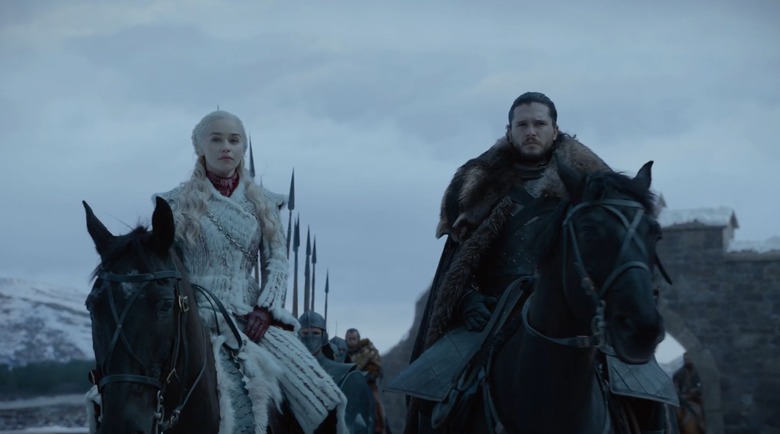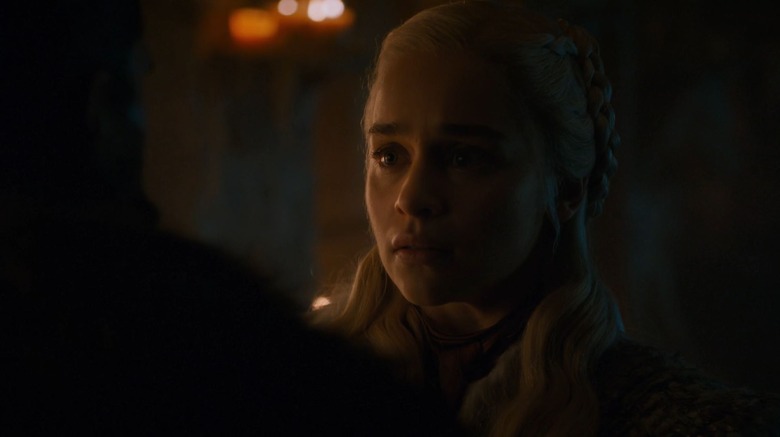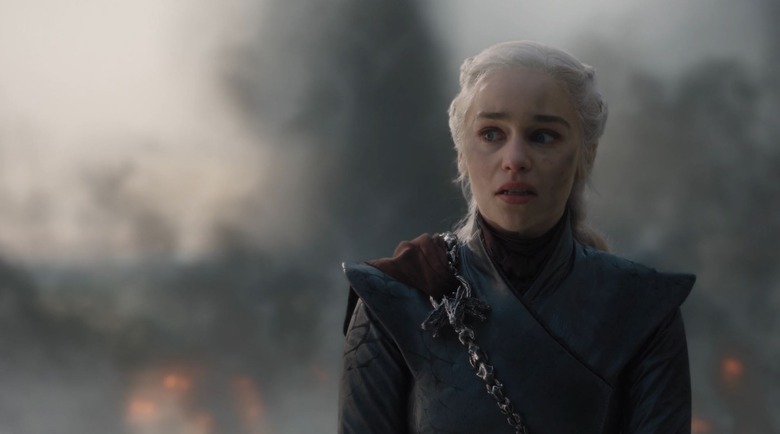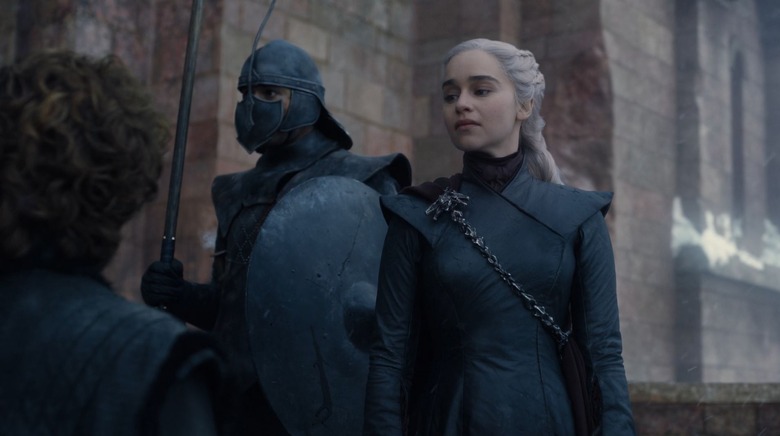Game Of Thrones Season 8's Big Downfall Is Daenerys' Story
After a two year wait, Game of Thrones' final season premiered seven weeks ago, and for a lot people, what started with a ton of anticipation ended in disappointment. Game of Thrones is currently at the center of a lot of discussion, and at the moment at least, those discussions largely seem to be negative. There are a lot of reasons why people are disappointed with the final season of the show, but for me, the biggest is that this conclusion wasn't given the time it needed to have the impact we were all expecting.
I've been doing recap and analysis articles for each episode throughout the season, and in most cases, I've tried to keep my personal opinion of those episodes from seeping through. Sometimes my feelings about individual episodes came to the surface anyway, but regardless, I was disappointed with the show's final season.
When I initially heard that the final season was going to be only six episodes long, I was immediately concerned that it wouldn't be nearly enough time to wrap everything up. Then, a couple of weeks before the season premiered, HBO published the running times for each episode, and four of them ran longer than an hour and were nearly feature-length. That helped allay those fears, but it's clear now that even that wasn't enough time.

I don't think I'd go so far as to say I hated the final season of Game of Thrones, but as I was watching it, I definitely got the feeling that everything I was seeing would have been so much better spread out over two seasons, or even just the usual 10 episode format Game of Thrones stuck to up until the seventh season. Nowhere is that better reflected than in Dany's turn from a beloved liberator to a brutal conqueror.
Daenerys's shift from hero to villain is something that many of us were probably expecting. There's been a good amount of foreshadowing throughout the series and even plenty of on-screen sequences showing us that the Targaryens are generally only a hop, skip, and a jump away from full-blown insanity.
Mad King Aerys – Dany's father – and his desire to burn down King's Landing when it became clear he was losing to Robert's Rebellion has been referenced many times throughout the show. Then we had Viserys, who could turn into an abusive, maniacal monster at the drop of a hat. Even Dany's own brutality when it came to dealing with her enemies suggested to us that there might be a darker side ready to boil over. Remember when she sentenced Xaro Xhoan Daxos and Doreah to death by sealing them in the former's empty vault? That was one of the darkest and most unsettling moments of the entire series!

The point is: the show has done a pretty good job of telling us that the Targaryens are capable of horrific cruelty, and yet when it came time for Daenerys to become the villain, it all felt so abrupt. How could that happen?
Though there was plenty of indication that Daenerys may one day become a villain in the show, we didn't get to see very much of that descent into madness. At the beginning of the season, she's still riding high – she's lost a dragon, which was a significant blow, but she's got a solid claim to the throne and people seem to like her (or, in the case of Sansa and Arya, tolerate her). She doesn't even discover that Jon is actually Aegon Targaryen and a potential challenger to the throne until the end of the second episode, and at that point, we have to devote an entire episode to the battle with the White Walkers. That means it isn't until episode 4 – two thirds of the way through the season – that we see any of the fallout from this revelation.
What follows is a fast sequence of events that are meant to show us that Dany is going crazy. She has a few quick exchanges with Jon where she cements this "my way or the highway" mentality she's adopting, Rhaegal dies in what's probably one of the stupidest deus ex machina moments I've ever seen on film, and then Cersei unapologetically kills Missandei, one of Dany's closest friends and longest allies.

All of this is meant to send her further into the pit of insanity, but she's never given time to actually process anything that's happening. Most of this happens over the course of a single episode. Then, at the beginning of episode 5, we get one scene where she looks malnourished, tired, and depressed before she kills Varys, has one last conversation with Jon, then loses her marbles for good and torches King's Landing.
Again, I'm fine with her going crazy and destroying King's Landing along with everyone in it. I think that makes sense given what we know about the Targaryens and Dany herself, I like her arc ending with her becoming the enemy, and in general, I'm open to as much dragon-based destruction as this show is willing to give me. But when Dany is sitting on top of the walls of King's Landing and listening to the bells, seeing her take that final plunge into insanity is a moment that doesn't feel earned (that's despite Emilia Clarke's best efforts, too – she really acted the hell out of that scene, but even an actor of her caliber isn't enough to salvage a rushed narrative).

If this season were 10 episodes long, we would have had much more time to see her slowly descend into paranoia. The show could have taken the slow-burn approach that has served it so well so many times before. The more time we get to spend watching Daenerys unravel and give into those darker thoughts, the more impact that moment where she decides to ignore the Lannister surrender has. As it is, though, it feels like we got a Wikipedia summary of an actual season – it gets the job done, but it isn't really satisfying.
Season 8 has more problems beyond Dany's quick shift to despotism, but I think that abrupt turn really encapsulates the biggest problem with the season as a whole: instead of being patient and wrapping everything up only when these moments have been earned through character development, it raced to the finish line as fast as it can.
It's a shame too, since many of us fell in love with Game of Thrones specifically because it took its time. It created drama by zooming in and showing us the private moments of its characters, and it relished in those moments too. In a show about war and magic, Game of Thrones often put action on the backburner and opted instead of focus on the conflict in politics and internal motivations. If the final season had stuck to that commitment, we probably would have received something that was a lot more satisfying.
